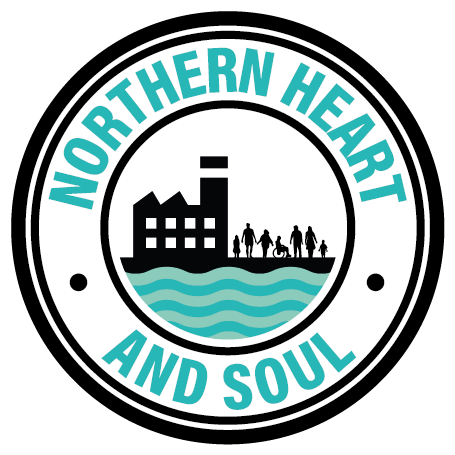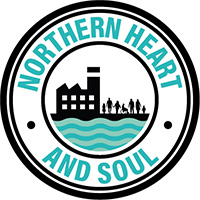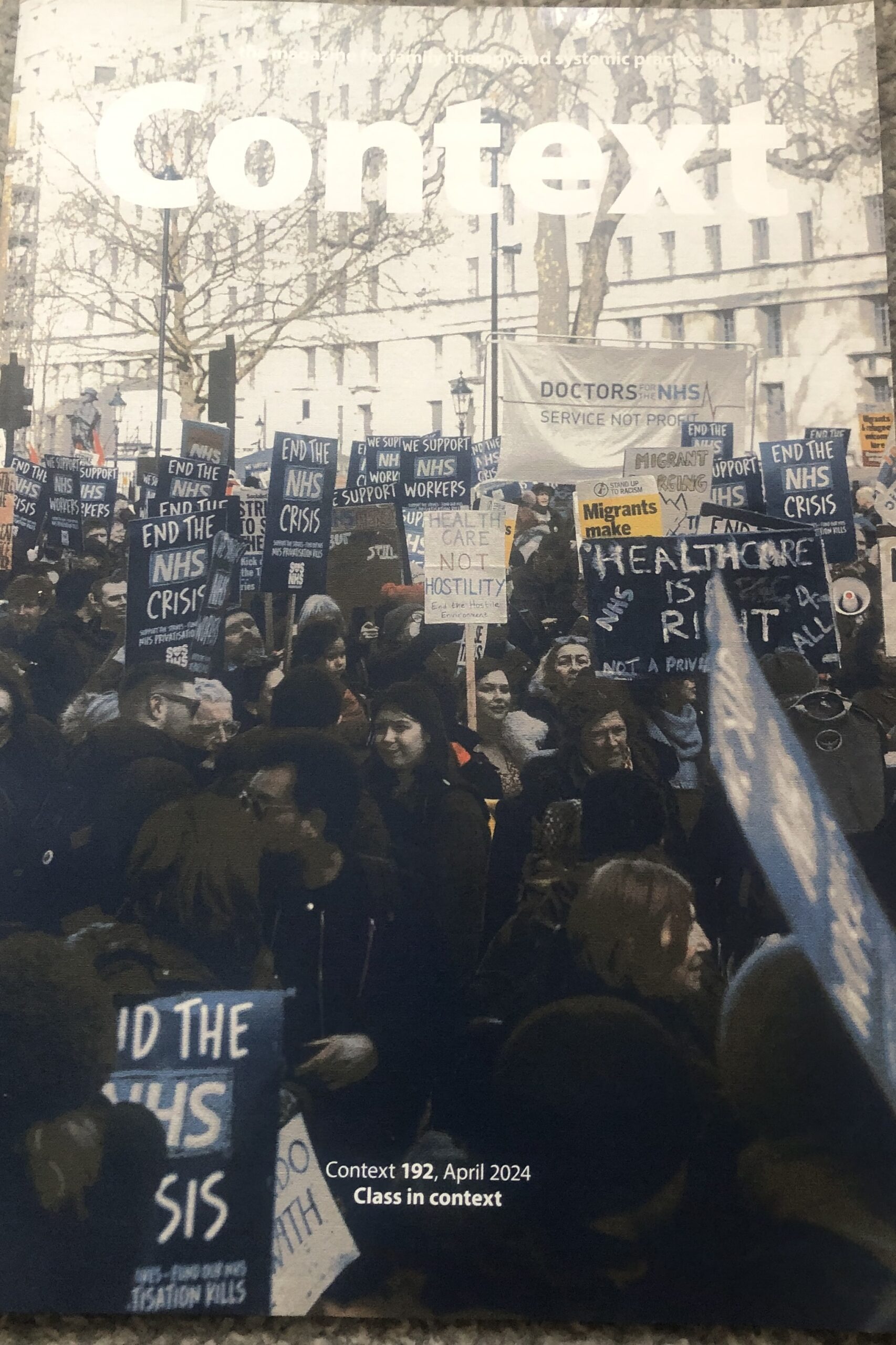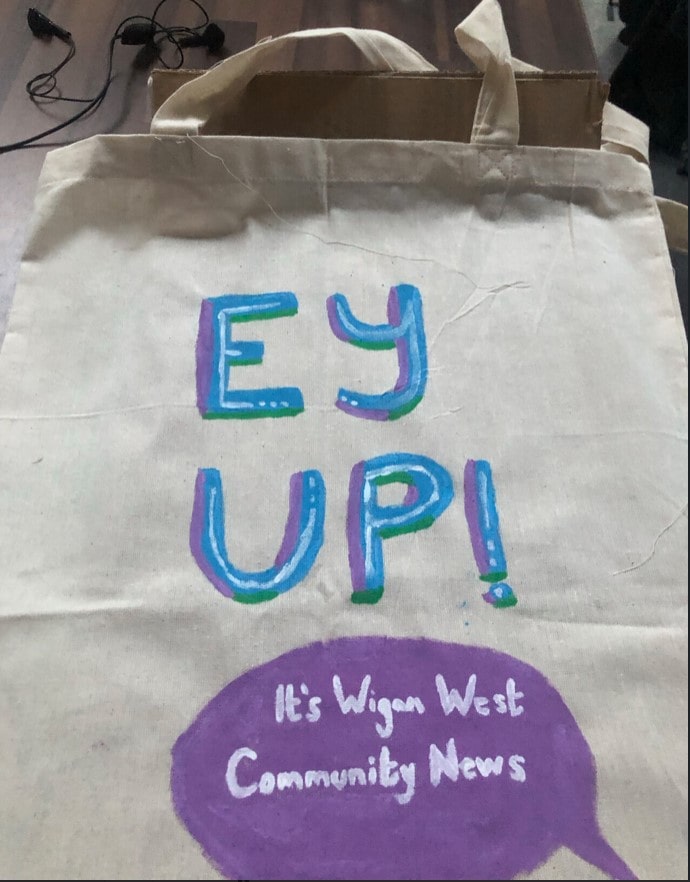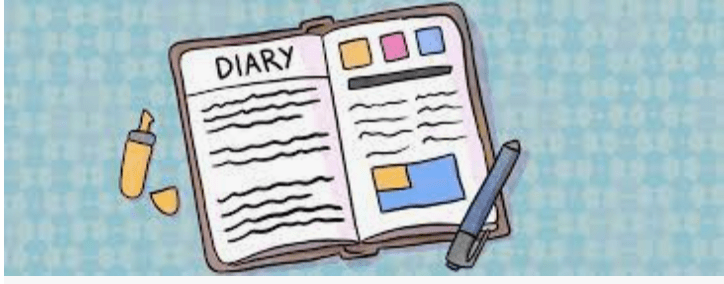
Why People Come Together
This summer, whilst we were in full community Playbox flow, Jack Hunter came to visit for a day. We had a mooch around the neighbourhood and then settled in the park where we sat on the grass whilst Jack interviewed Angela for his research. Here’s Part One of the edited interview.
Jack is a PhD researcher, living in Scarborough. His project is sponsored by York St John University and Joseph Rowntree Foundation and is focused on how and why people come together to take radical and transformative change in their local neighbourhood – and what might be done to nurture the soil in places where this hasn’t yet taken full fruit.
Jack
It’d be interesting to know a little bit about how you have come to be doing this kind of stuff. And what you think are the key factors that explain why here? Like, why have neighbours come together in this way here and not somewhere else?
Angela
I’ve come to be doing this stuff because I spent many years in public service reform, reforming services or working in communities with short term funding programmes, and nothing ever really changed. Things didn’t get better for the people who live there. And I think it really, really struck me in 2016 when I was invited to go to an organisation in Netherton in Sefton to do some evaluation. I’d been involved with the organisation since 1997. As part of that work we invited Cormac Russell along to do some Asset-Based Community Development (ABCD) training. We looked at the local statistics, and we looked at the assets and resources. We discovered that little benefit could be seen in the area after single regeneration budget funding, sure start funding, urban and multiple European funding cycles. In fact life had got worse, and there were no resources left or to be seen.
The self organising associations that had been a feature of community life back in 1997 when I first started to work there had disappeared. Some had disappeared, I rather contentiously believe, because of Ofsted requirements and Health and Safety legislation, and, Sure Start (which I’d loved the idea of) had come in with this idea of evidence based practice, and kind of unintentionally got rid of a lot of the self organising Preschool Learning Alliance play groups. They told people instead ‘we know how to show you how to do things’. It undermined the value of peer support in my opinion. And was part of the shift from being a community peer to a volunteer.
Add to that austerity kicking in, Sure Start and evidence led programmes disappearing, doors locking and it just left nothing in the community. And so it just really opened my eyes to this perpetuating cycle of over reach, rescue, withdraw, blame, and that people’s lives were not actually improving.
This was just after my Wigan experience. A good few of us had come off timetable to explore different ways of working with families. We could see the possibility and at the same time were uncovering the systemic issues, and eventually becoming the latest pet project to be replaced by the new fashionable thing in town by the new senior manager. Watching that boom and bust of programmes and projects just made me think that perhaps there is another way.
And it just so happened that Gill and I had worked together on the family stuff, and we lived in the same community. Just before lockdown, we got together. I’d worked in my own training business, by this time, for about four years after leaving the council feeling exhausted. And I just said to Gill, ‘Shall we see, if we can do what we really wanted to do, and felt blocked from doing in the community?’. So we started, Gill took a brave decision and left her secure job, and came working with me at RIPEN before we set Northern Heart and Soul up together. At that time we were providing training for some local authorities and some ABCD training for Nurture Development and were able to show up in community a couple of days a week on the back of that.
Jack
Was that pre-pandemic?
Angela
Yeah, just before the pandemic. I think it was the week before we went into lockdown. I’d been into town and met with an Assistant Director of Adult Social Care to say we were thinking about applying all our learning and experience in the place that we live in as a last ditch attempt before I retire (I cant speak for Gill) at seeing, what might happen if you centre growth within the community, rather than from within an institutional plan.
So I suppose everything just lined up. And then the pandemic provided us with an opportunity to give it a go. And we found some other women who were similar thinking, some of those have passed on, some of those are still involved and more people have got involved. And we were very, very intentional about using the touchstones of Asset Based Community Development as a guide and really kind of trying to support people to focus on what we have first of all, rather than, like what other people could do for us, and that was, and still is really tough. Walking the tightrope between the function of a community and letting services off the hook, or colluding with cuts is a toughie.
We had to be really slow and intentional when thinking about those three questions: What is it that we can do ourselves? What can we do with support? And then what we want others to do for us? And because we weren’t a project, and we didn’t have any time scales, we just were able to spend a lot of time listening and talking and not doing anything other than listening and talking. And then working out how those things might connect together.
Jack
Yeah. You’ve got a long background in this kind of stuff…?
Angela
I’ve worked in communities, I trained to teach and I hated teaching. I trained to teach in inner city Manchester. And my placements were in Wythenshawe and Moss Side and I just thought teaching wasn’t for me, or the kids… it was 1988, the national curriculum had just been introduced. And I just thought teaching in that way wasn’t what the kids needed. Or what communities needed. So when I finished there, I went into play work and community work. So yeah, I’ve worked inside and alongside communities in different guises mainly around child and family stuff, from becoming a Mum, the last thirty years or so. Just after my eldest son was born really, so in different guises, I’ve been working in communities for that length of time.
I’ve been a rescuer, I’ve been a fixer. I’ve been a doer-to-er. I’ve done all the things that I now advocate against. I kind of understand how easy it is to do that. And I understand the pressure in systems to get you working in that way. Even the best asset-based stuff starts with a need. I’ve come to believe that, in some respects, you’ve got to experience community as an act of solidarity rather than charity to understand. A lot of people think they’re doing solidarity, but they’re not really doing it.
Jack
How do you mean?
Angela
A lot of people aren’t intentionally aiming to shift people from participant to producer – acts of liberation. And really think about that. Really think about how you do that and how you create the space for it to grow.
People tend to be stuck in fixing, no matter the wrapping paper it wears. People tend to recruit into a project or they’ve got a plan to get everyone to be a health or a community champion, you know, the institution has the plan /the idea that they’re going out to engage on. It’s a symptom of systemisation and paternalism. Not many people start with a blank sheet. And start with what really matters to the community. And, that can be challenging, to go slow and start there, because we’re in a polycrisis, everything’s collapsing, planet’s burning, and everything’s going on and we’re going ‘oh we’ll just listen hard and play’, create some joyful healing and being spaces and see what emerges.
There’s that real tension, realising how important it is to start where people are, and work that way. So people do know they’re doing it themselves, with alongside support. I think we’ve so little expertise in community development, because it’s been cut and watered down over many, many years. There’s not many people around who understand community development. The focus is on engagement and co-production. Co-production is about as deep as it gets, like seeing that people’s role is about making services better. There’s a whole layer than needs resourcing before co-production. And a whole life outside of services. There’s a lot going on though outside of traditional systems so when I say people think they’re doing it, I really mean institutions think they are doing it. It’s happening outside of the system rather than within or facilitated by the system. Dominating systems are light years behind and often slow the work down or put up unnecessary road blocks. Getting them in the right relationship would be the dream.
Jack
Can you say more about the local work you do?
Angela
So at the start of the pandemic, there was like five of us behind it all, five women. And we were just the mutual aid group. And we were doing all kinds of good things. And then people got interested in what we were doing, and so more people wanted to join and we had an AGM and people came and watched the film we’d made about what we got up to together during the pandemic.
More people wanted to get involved and it wasn’t until later that we realised we’d attracted lots of charitable folk. A lot of people who were like kind of stuck in charitable mode and wanted to help and wanted to rescue really. They liked helping poor people. Which is all very well and needed, but there’s no room for liberatory practice when all your energy is taken up with poverty soothing and seeing people for what they need rather than what they have.
Jack
Can you say more about what you mean by charitable mode?
Angela
It’s well intentioned, but the work is really meeting the needs of the charitable soul and they often can’t see that. Playing into the drama triangle. We were attracting more people with those kind of motivations. And so we had a bit of a rethink. And that took us about 12 months to get us to where we are now, which is around this idea of an organising circle and slowly and surely introducing new practices and ways of being in community. And that’s still really tricky, really, really difficult. Because it’s a real big shift, isn’t it.
So we’ve all different ways like the organising circle, the Facebook group of 3000 people where we have all kinds of different conversations and encourage just general sharing and gifting and mutual exchange. We try and grow that. What we’re trying to do is more neighbour to neighbour stuff. You might need me and I might need you.
So we’re constantly sharing that message across the area. And then we have these different spaces, Camerado places. So we’ve got one on a Thursday morning, one on a Monday, one on a Tuesday. Some are just for women, we have another monthly thing for women. We have small organising groups that are doing their own stuff and organising their own stuff. And then we have community cash, the participatory budgeting stuff quarterly and linked to that there’s another few groups that get together because they care about something that they want to action.
And really the organising circle consists of these new associations that have grown from these new springs that operate in a bit of a different way, more circular with consensus decision making at its heart. So they get together and it’s open, but it tends to be the new community people who come to this, those who want to organise differently. So the traditional type of community leader, the one who likes to centre themselves and their work don’t really join in with that stuff.
Jack
Why is that?
Angela
We find the more traditional stuff operates in very hierarchical ways and has a different vibe. And they probably think we’re daft, which suits our purpose. People are responding to a different invitation from ourselves. Like, we’re not saying, like ‘We put on something in the park and 100 people came, and we’ll put ourselves in for an award and celebrate what we do’. We just say, ‘we’ve got some resource together, and we’re opening up a space. Come and contribute what you’ve got and there’s this range of stuff going on’.
So I suppose there’s only a certain kind of person that answers that call. In some respects it’s like a different call than a community organisation offering a service? We’re not offering a service. We’re offering life. And the magic is what grows between us. And you can’t count that.
Jack
You’ve spoken before about solidarity, not charity, right? Is that just like an organising principle for you? How would you describe the core difference in terms of what you guys are doing?
Angela
I think it is. I think the core difference is around seeing people for their gifts, for what they have. And connecting those together and enabling people and communities to be surprised about what they can achieve really. It’s providing a bit of a container, for people to be able to stand in solidarity together and then use that to liberate. So long term it’s really about bringing resource and wealth and land and property back into communities that have been extracted from, by supporting local communities to cast off the shackles of labels and put downs, realise there’s little bits and bobs of stuff that they can do. And then kind of accessing the external resources that we need to really shift power and resource back here to the commons.
When we talk about imagination and building the future, you know, here it is, in this park where we are sitting watching families doing what comes natural – playing together. It’s these young people right now in this park who don’t have any external resources to support them to organise or any resource to support them to step into their talents and their skills and their abilities. In a way that the current education system can’t do as it puts them in boxes, writes them off and excludes them. So I think, I don’t know, I can’t describe what we do. I don’t even know what we’re doing. But I know what we’re doing feels right. And it’s emerging. It’s very, very early days. It’s still very emergent. And what I suppose I’m keen to do, is incorporate building as well as organising because what I see often is organising without the community building connecting. That for me is like trying to grow a plastic flower. It might look good on the surface, but there’s no roots and its not contributing as much as it can to the eco system. Although I do acknowledge that some flowers can only bloom away from the toxic soil they may find themselves in.
Jack
How do you mean about the organising and building?
Angela
So I’ll use some of the Big Local stuff I’ve experienced as an example. Not all of it, there’s some great examples, but the ones I’ve been close to create ways of decision making that match and mirror, the paternalistic, hierarchical, colonial, patriarchal. And then often we start to overcomplicate, you get neighbourhood plans that get really, really technical, and people don’t know how they can contribute to it any more. Or we get ‘task groups’ and complicated terms of references with agendas and minutes and rules of procedure. And I suppose what we’re trying to build here, and we don’t know what it’ll even look like, are more circular ways of coming together, the local way of decision making, that doesn’t just select the ones who think and look like the people who came up with the idea. We don’t want to grow partnerships with the same usual suspects or grow individual social enterprises. We want to grow things for the collective common good, so that we can all see we are needed here and how we function together as an eco system.
So we’re commoning as opposed to going “right let’s get one person out of poverty. And then they go off somewhere else”. We don’t want an escape ladder out. So we’re curious about how we build a real young person centred, women centred, everybody-centred, decision-making process in community where people can really deliberate together. In my experience from having at one time managed children’s participation teams and engagement stuff, decision making systems were usually set up for a certain kind of person who’s already got a level of confidence, and resources to get to the table. They tend to attract people who like to participate in the same way as the people who set it up. It privileges a certain type of person. If I go back to November time last year. Some of the women here today were in a conversation group and saying things like “I didn’t even think that anybody even wanted to listen to me”. Now they are hosting community play and inviting others to join in. So how do you like really collectively cultivate agency in community? How do we enable all to feel their voice matters as much as their neighbours? We often fail to recognise the underground work required to bring this to fruition.
Jack
I struggle with it. Yeah. And it is, and you’re up against big things, which I mean, you’re talking about patriarchy, and colonialism and capitalism and all of this kind of stuff. And, it’s sometimes tricky to like, hold that in your mind, in the everyday, I imagine.
Angela
Yeah. I think I kind of got thinking that if ever there’s a time, it’s now. Because I’m at that age where I don’t actually give a toss. Well, I care passionately about some things. But I’m old enough now to think, well, I don’t care. I think the pandemic enabled people to connect. It did for me anyway. I had no idea about some of the great and glorious work and people out there. And realise too that there were more people like me in some ways who maybe, who had spent most of their working life thinking, ‘Am I wrong?’ Questioning themselves, sitting in meetings going ‘I don’t think I agree with that but it seems to be only me who might have a different view’. I think there’s deeper strength, more solidarity and people doing the futures work are far more connected. I feel that way anyway.
I was really hopeful at one point and then since the pandemic, almost high from possibility and imagining, I’ve been through the depression and had my hopes squashed. I did at the time feel like, ‘Oh, we’re going to reimagine education. We’re going to reimagine this and that.”
Jack
We were gonna reimagine everything, weren’t we?
Angela
And it only takes a day in the centre of London for me to go “that ain’t going to happen”. But I just think, I think we can do something lovely and small right here. And I think this is the size we need to work at.
Jack
Which is what?
Angela
Around 12,000. And here we’ve three communities, we’ve three neighbourhoods here. But I’m not interested in the reform agenda, I’m just interested in seeing if we can, like other places, own some of the stuff around here, make more decisions about some of the stuff round here and be a place where everybody feels that they’re able to contribute in some way.
